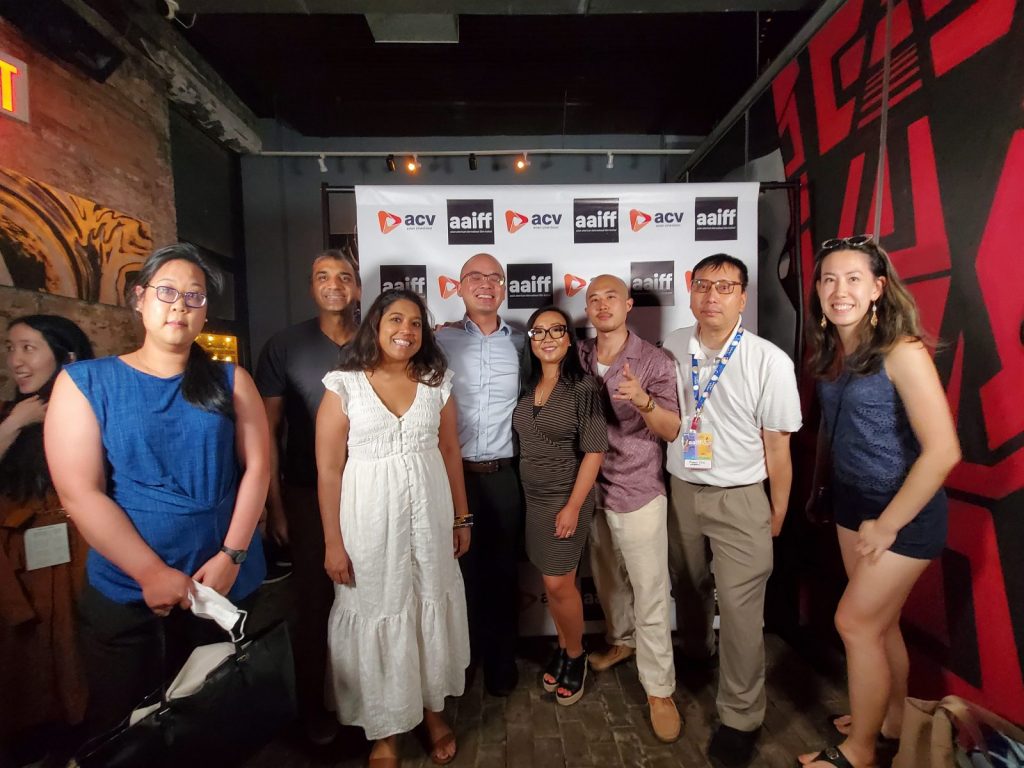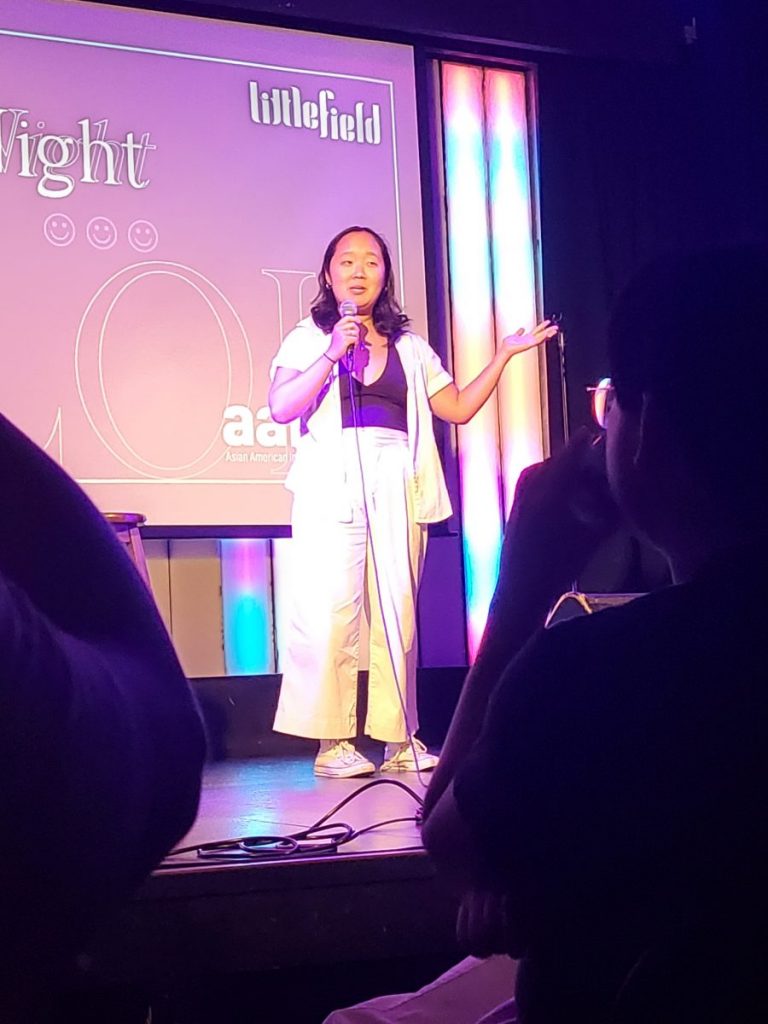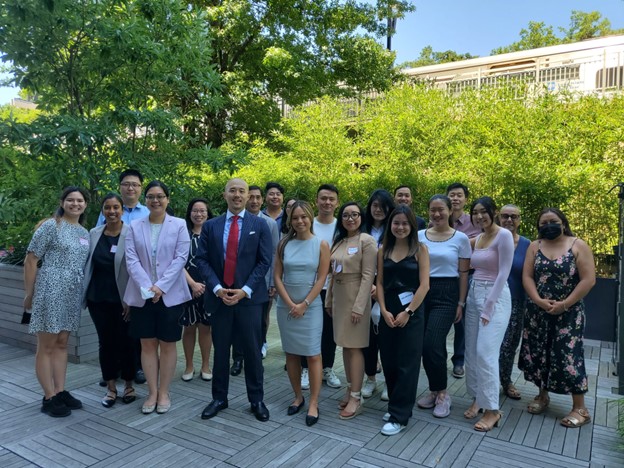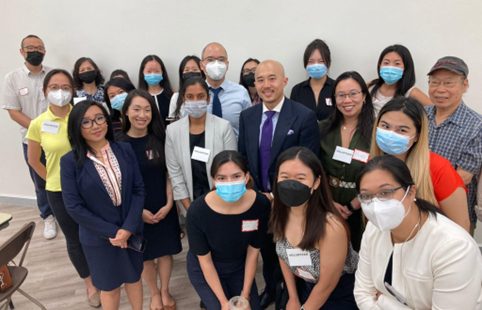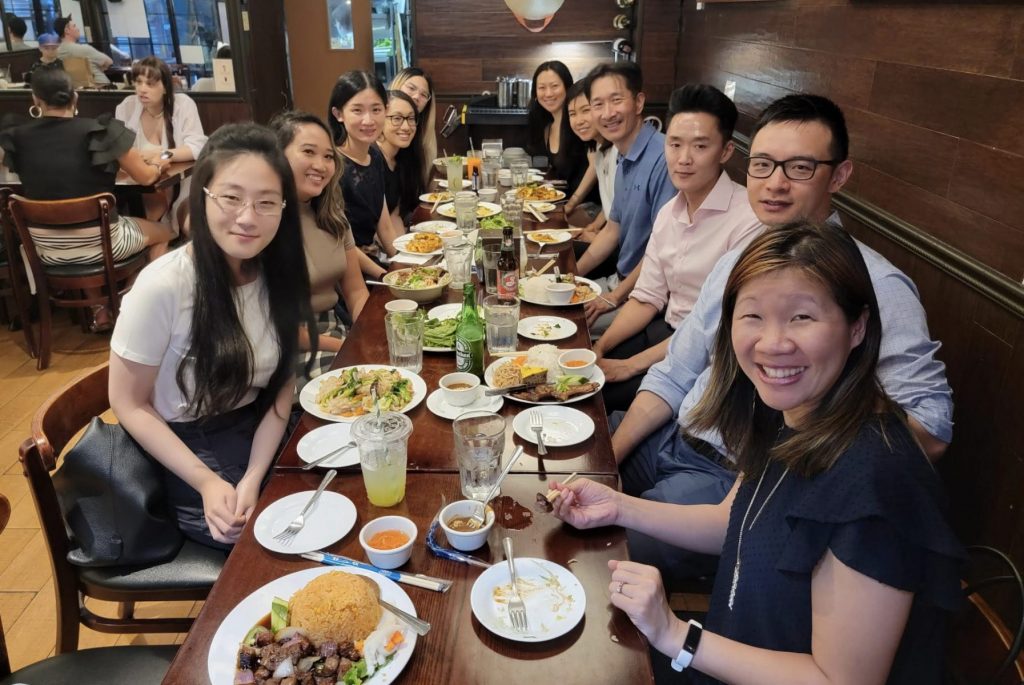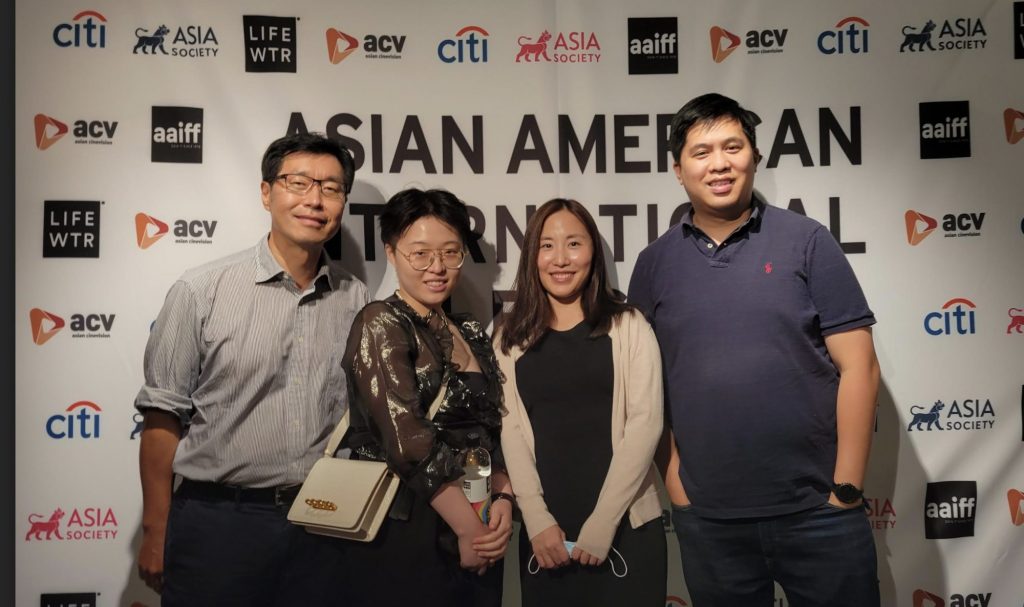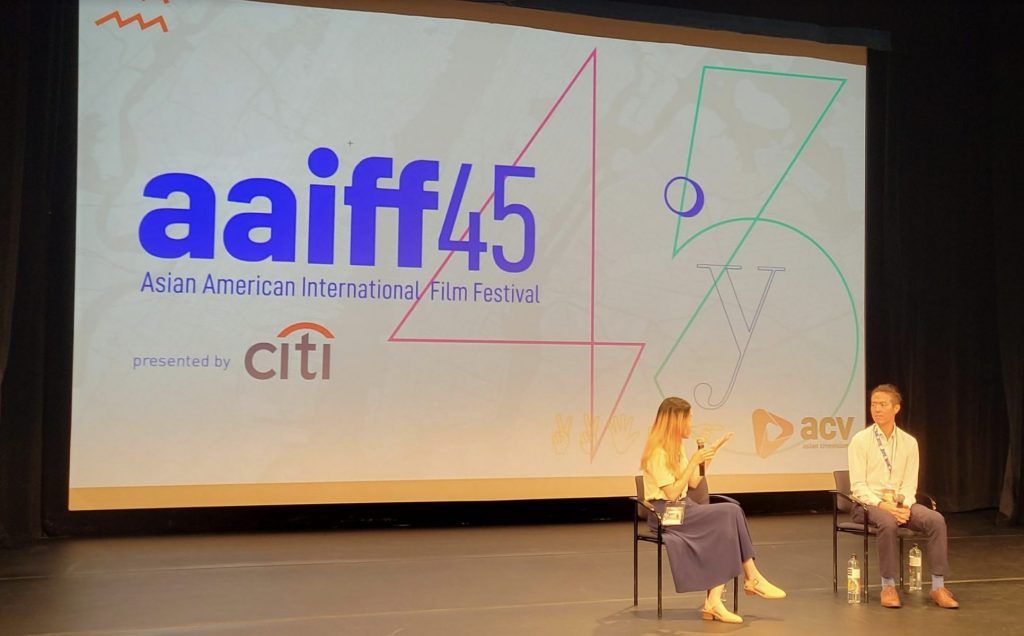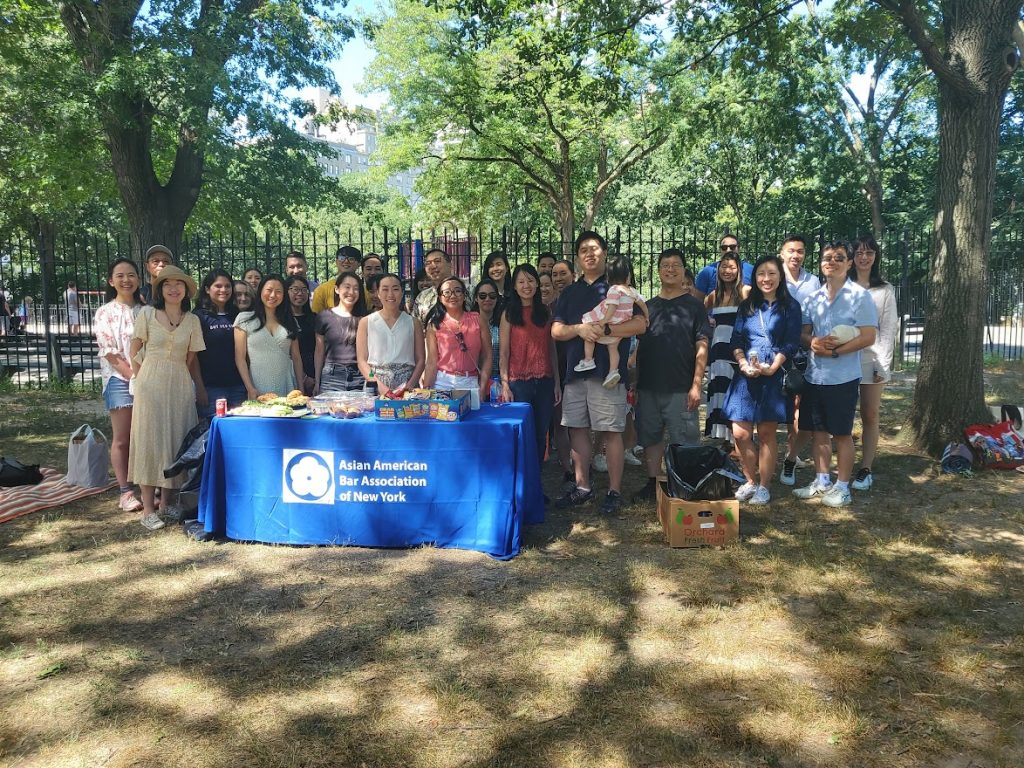
On August 13, 2022, the Young Lawyers Committee (YLC) Co-Chairs, Jasmine Chean, Jimmy Kang, Jenny Park along with Vice Chair of Solo & Small Firm Practice Committee Yifeng Chen planned and organized AABANY’s Annual Picnic in Central Park. This was the first time in three years that AABANY held the picnic in Central Park. We could not have asked for better weather for this return: The temperature was in the low 80s with no humidity. The Spector Playground Lawn, where the picnic took place, had shade from the trees to keep the guests cool.
Over 55 guests attended, and AABANY members brought their children, siblings, spouses, and even their parents to enjoy the perfect picnic weather. YLC Co-Chairs ordered dumplings from Vanessa’s Dumplings and provided sandwiches and snacks for the guests to enjoy.
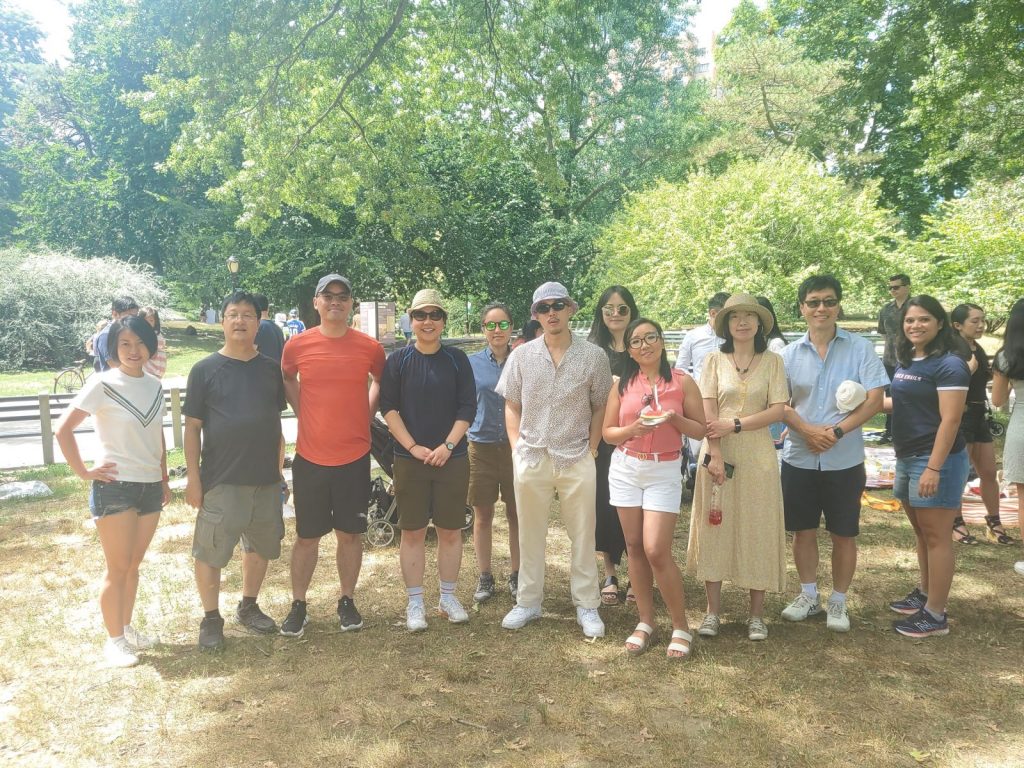
Board Members in attendance included Andy Yoo, the Board Liaison for the YLC, Vice President of Programs & Operations Beatrice Leong, and Board Director David Sohn. It was David’s 40th Birthday, and he made time to bike to the park to say ‘hi’ to members and guests!
Pro Bono and Community Service Committee Co-Chair May Wong sold kites and toys to fundraise for the Pro Bono Clinic.
We thank everyone who made it out on a beautiful Saturday to celebrate this annual event with us, and we thank the leaders from the YLC and the Solo & Small Firm Practice Committee for all their hard work to make it happen.
For more information about YLC, go to https://www.aabany.org/page/123. For more information about the Solo & Small Firm Practice Committee, go to https://www.aabany.org/page/111.
To see all the photos from the picnic, go to:


